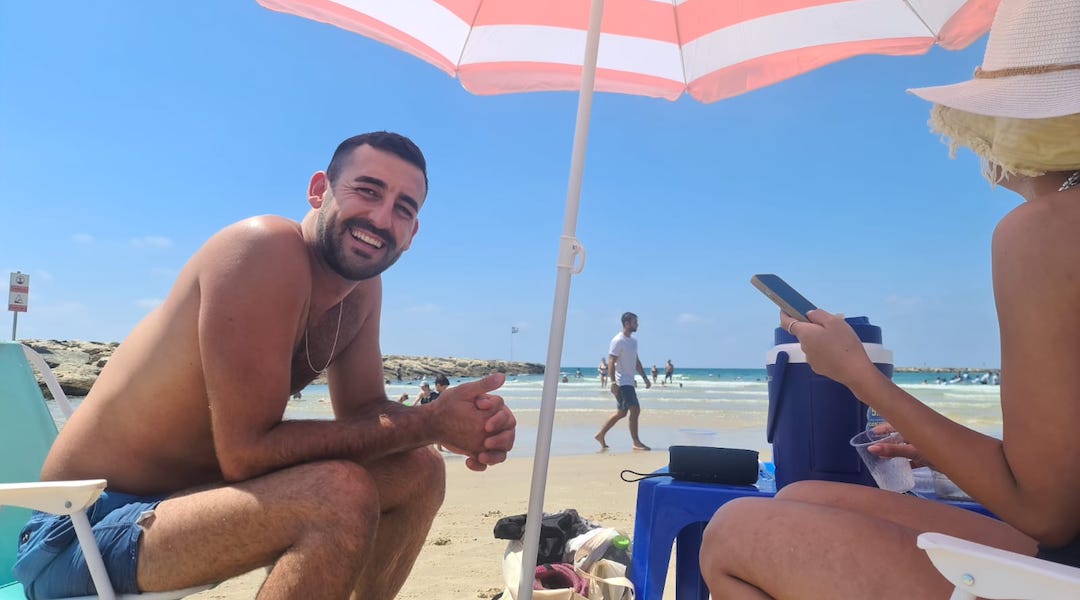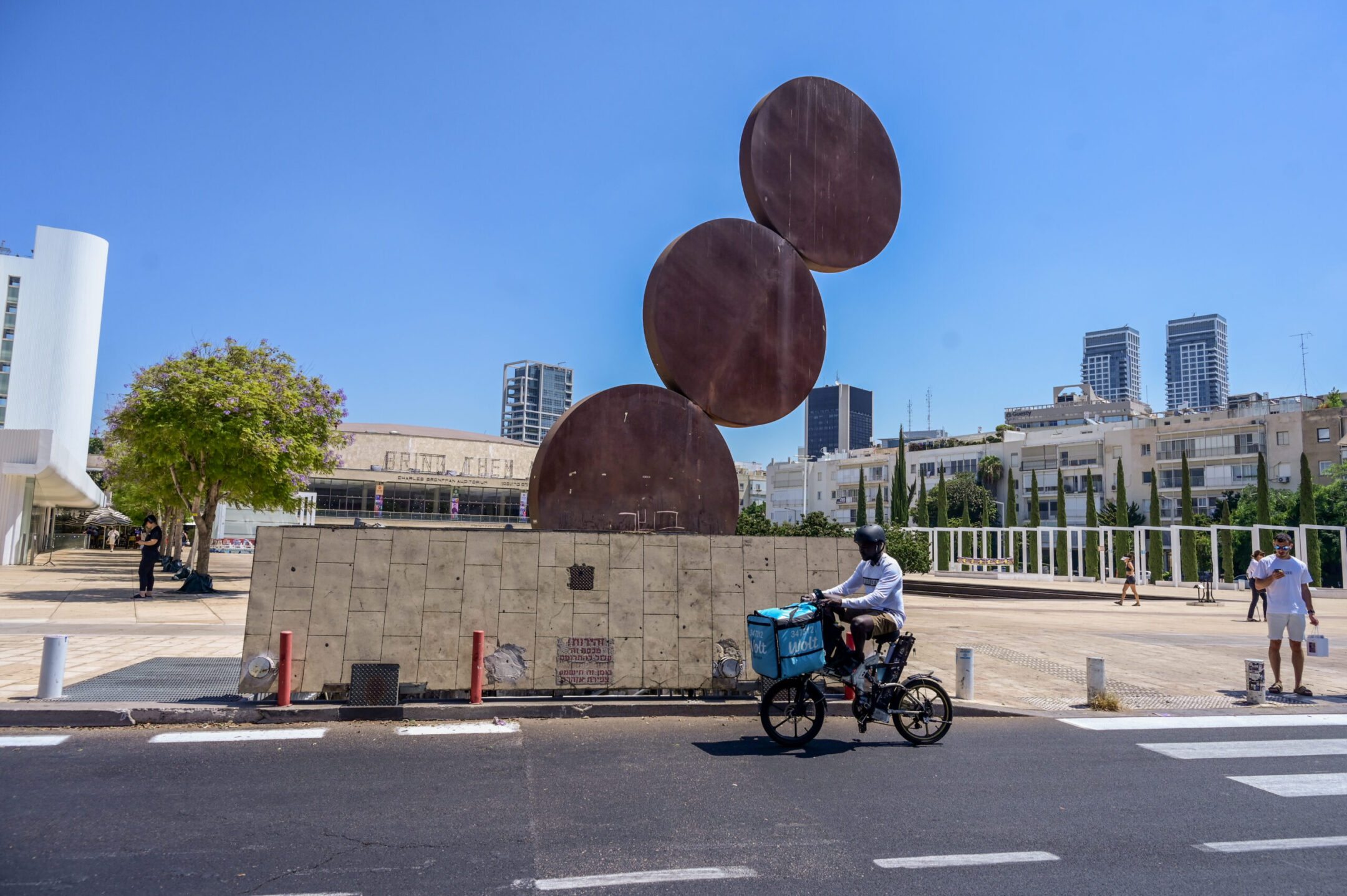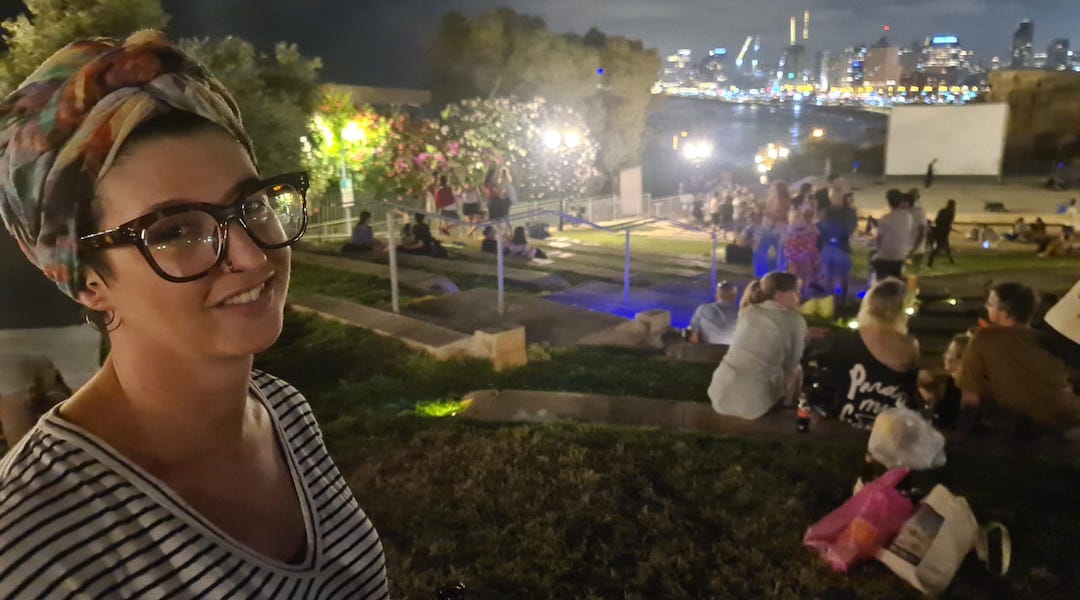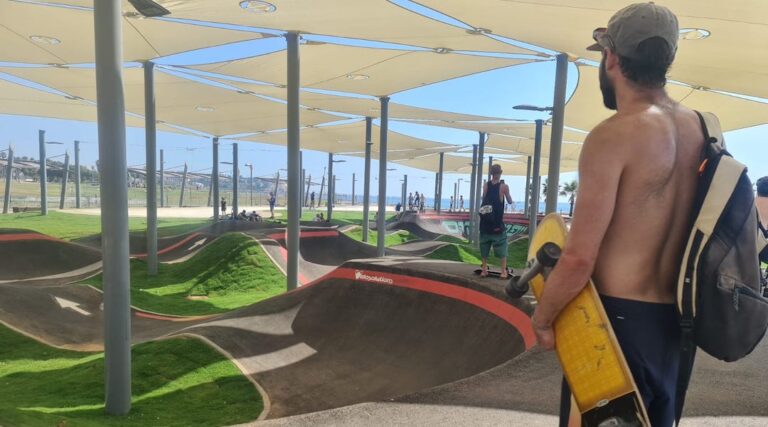TEL AVIV — Adi Tamir faced a series of dilemmas as news of a looming attack from Iran and its proxies circulated. Should she proceed with her weekend vacation on the banks of the Jordan River? Living in a town near Israel’s northern coastline, well within reach of Hezbollah’s rockets, should she even leave her house?
After much contemplation, she reached a compromise: she would forgo the vacation to Israel’s border with Jordan, but she also wouldn’t stay cooped up at home.
“I’m not going to play with destiny to that degree,” she explained regarding her vacation plans.
“But I am going out,” she added. “I don’t want to halt my life due to a ‘what if.’ We’re living in a tough situation, but the best we can do is acknowledge that we’re not in control and accept that fact.”
For months, Israelis across the country have been grappling with similar decisions, as daily life persists amidst a multi-front conflict that frequently spills over into populated areas and leaves once-popular recreation spots deserted. Israelis have become accustomed to a constant cognitive dissonance — surrounded by reminders of the war and the casualties or hostages it has left behind — while they go about their routines, send their children to school, and often venture out for leisure activities despite the risks. This tension has only heightened as Israel prepares for a potential attack from Iran following a strike on a Hamas leader in Tehran.
“It’s like living in two realities simultaneously here,” shared Karin Hershkovitz, an Israeli influencer residing in the United States but visiting her family in Israel this summer. “Working, kids, ‘routine,’ partying, and living life — all while coping with grief, actual threats, and constant uncertainty.”
At times, the disparity is stark. Just hours after a drone launched from Yemen exploded near the Tel Aviv beach last month, claiming the life of a local worker, the shore was filled with locals enjoying a weekend in the sun.
A group of families gathered for their weekly surfing class — only one cancellation was reported in the aftermath of the strike — and the usual flow of cars, bikes, scooters, and pedestrians continued uninterrupted. A passerby, amidst bustling cafes and shops, could easily overlook the fact that the vibrant area had been the scene of an international terror attack earlier that day.

Amit Mizrahi returned to his routine shortly after a terror attack in Tel Aviv. (Deborah Danan)
“I thought about not coming for like half a second but to be honest, I’m far more concerned about jellyfish,” Ofer Zimri chuckled.
The bustling beach indicated that others shared Zimri’s sentiment. Close to the water, a couple relaxed on the sand with beers in hand.
“Life here moves at such a rapid pace that you forget. One day there’s an attack, and the next it’s back to business as usual,” remarked Amit Mizrahi.
But like many Israelis, he had made some adjustments to his life since Oct. 7. He acquired a license for a weapon, purchased the gun, and remains vigilant in public spaces, constantly surveying for exits and monitoring for any suspicious activity.
“Just last week, there was a terror attack near my home in Rishon Lezion,” he recounted, referring to a car-ramming incident that claimed the life of a soldier and left three more injured. “But no matter what happens, I still feel secure. Because this is our home, you know?”
For numerous Israelis, the losses of Oct. 7 and the ongoing war have hit close to home. Ziv, for instance, had a childhood friend who was killed at the Nova music festival and another friend who lost both legs during combat in Gaza. Ziv mentioned that he is awaiting another call-up to the army.
In the meantime, Ziv was skateboarding at a nearby park. During a break between tricks, he spoke philosophically about life in the shadow of war.
“Life is the antidote to the opposite of life, which is loss,” he reflected. “My life may be on pause, but I’m striving to return to my routine as much as possible. I attend therapy sessions, I skateboard. Movement is therapeutic; it alleviates the pain and stress.”

People walk near the entrance to an underground shelter at Habima square in Tel Aviv, Aug. 2, 2024. (Avshalom Sassoni/Flash90)
Some Israelis view going out as an act of defiance. At a recent concert headlined by Jewish American rapper Kosha Dillz, Michelle Long expressed her commitment not to succumb to despair or, as she phrased it, “drop the ball.”
“We’re all leading double lives. You witness something terrible, your heart skips a beat, and then you put your phone away and carry on,” she remarked.
“Well, sometimes you can resume as normal,” she added. “Other times, you behave completely recklessly. And sometimes, you’re not even sure what’s influencing your actions anymore.”
Noah Shufutinsky, one of the opening acts of the evening performing under his rap moniker Westside Gravy, noted a significant shift in his music since Oct. 7.
“The new normal means that I won’t perform the usual songs I would at any other time. I won’t create music solely for enjoyment,” Shufutinsky explained. “Much of my focus has shifted to addressing the issues that Israelis are grappling with and attempting to mirror a bit of the society I am now a part of, through music.”
For Kim Feldman, attending a rap concert or any other event requiring tickets and prior planning has become too daunting since Oct. 7. Instead, she finds solace in simpler evenings with friends, such as a screening of “The Princess Bride” in a local park, part of a free weekly outdoor movie series.
“I can’t commit to a party. I can commit to a park hangout,” Feldman shared. “It’s truly enjoyable to visit a relaxed and social setting without going out of your way. It’s a casual form of socialization, with less pressure and fewer expectations.
Pointing around her, she remarked, “Just observe the number of infants and dogs present here.”
Many Israelis remark that the public atmosphere is not the same as it was in the initial months of the war, when the shock of Oct. 7 was still fresh. “Everything felt tainted and strange,” Feldman recalled.
“What troubled me was the scarcity of young men on the streets and the number of them who were injured,” Feldman commented on the hundreds of thousands who reported for military duty. “It’s been nine months, and in a way, the longer it persists, the more challenging it becomes. You’re not seeking to be disrespectful, but you’re striving to strike a balance where you can continue living as normally as feasible.”

Kim Feldman has avoided concerts and major entertainment events since Oct. 7, opting for low-key local gatherings. (Deborah Danan)
At a standup comedy show, popular comedian Udi Kagan was interrupted by the sound of a crying newborn. He inquired how the infant’s mother managed to plan attending the event when tickets had sold out months in advance. The woman revealed that she received the ticket from a reserve soldier who was summoned to Gaza at the last minute.
“It epitomized the prevailing mood in the country,” recounted audience member Idan Cohen, recalling the incident. “You used to take things for granted, but now you can’t. From the smallest detail — such as whether you’ll make it to the stand-up comedy show you purchased tickets for — to the most significant concern: whether you’re safe in bed at night.”
Cohen added, “But life goes on, especially for the children. The holidays are the toughest.”
Israelis have been particularly quick to alter their travel plans and vacations. Anat Shihor-Aronson, a spokesperson for the Ministry of Tourism, highlighted two primary reasons for this trend: numerous airlines have canceled flights due to the war, and many Israelis are hesitant to travel abroad, a sentiment fueled by rising antisemitism overseas and a strong desire to remain close to their loved ones.
“If God forbid something happens, they’re staying in Israel to be near home,” Shihor-Aronson explained.
Consequently, hotels in Israel are operating at 90 to 100% capacity, despite hosting only about 10 to 20% of the usual number of foreign tourists during the summer months. The higher occupancy rates are also attributed to approximately 24,000 evacuees, predominantly from Israel’s embattled northern region, currently housed in the hotels.
Shihor-Aronson expressed optimism about the future of foreign tourism, noting a steady increase in numbers even during wartime. While most visitors are Jewish and evangelical Christian tourists, described as the “loyal market,” there has been a rise in volunteer and solidarity groups visiting — at least until most airlines canceled flights this week in response to the Iran threat.
Some Israelis, like Tamir, are canceling their trips altogether. Cohen scrapped an annual family camping trip to the north due to frequent Hezbollah attacks in the area.
“There are numerous places we can’t venture to,” Cohen stated. “It’s simply too perilous.”
While life has largely returned to normal in Israel’s cities, one visitor remarked that this shift also reflects a bleak reality.
“The beach volleyball courts are bustling. Life moves on,” shared Jonathan Jaffe, a New York-based rabbi visiting the country for the third time since the onset of the war, on Facebook following the Tel Aviv attack. “You can interpret this as either an inspiring narrative of resilience demonstrated by a community refusing to yield to terror, or a less optimistic tale of a region that has grown all too accustomed to mornings like this.”

